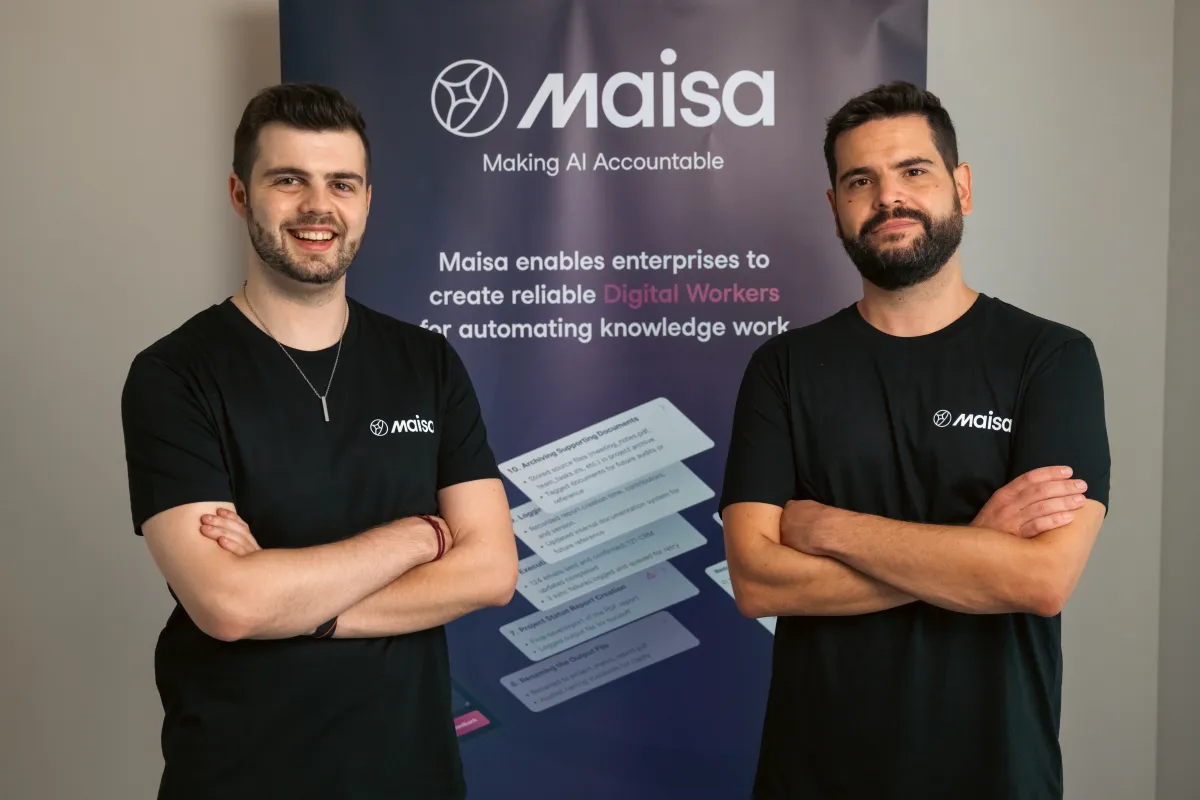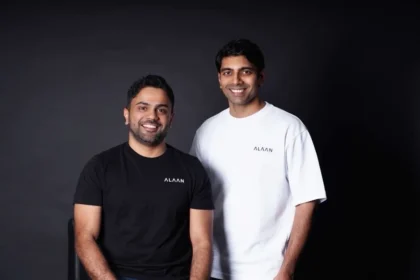With 95% of generative AI pilots failing, according to MIT’s NANDA initiative, a growing number of companies are shifting focus toward agentic AI systems that can learn, adapt, and remain supervised. Maisa AI, a year-old startup with dual headquarters in Valencia and San Francisco, has positioned itself at the forefront of this shift.
The company announced a $25 million seed round led by Creandum to scale its enterprise-first automation platform, Maisa Studio, which enables users to build accountable AI “digital workers” using natural language. Unlike traditional vibe-coding platforms such as Cursor or Lovable, Maisa says its model-agnostic framework emphasizes reliability and transparency.
“Instead of using AI to build the responses, we use AI to build the process, what we call ‘chain-of-work,’” said CEO and co-founder David Villalón. Alongside co-founder and Chief Scientific Officer Manuel Romero, the team created custom systems to curb AI hallucinations, including HALP (Human-Augmented LLM Processing) for step-by-step validation and the Knowledge Processing Unit (KPU) for deterministic outputs.
Related: Assort Health Raises $50M Series B to Scale AI for Patient Communication
The startup has already secured enterprise clients in banking, automotive, and energy, offering both cloud and on-premise deployments. It aims to evolve beyond rigid robotic process automation (RPA) by delivering flexible, trustworthy AI for mission-critical tasks.
Maisa’s funding round also drew participation from U.S.-based Forgepoint Capital International via its European JV with Banco Santander. Previous backers include NFX and Village Global, who led a $5 million pre-seed round in December 2024.
Despite a smaller user base compared to consumer-oriented coding platforms, Maisa believes its focus on accountability and regulated sectors will be a differentiator. Competitors include CrewAI and other workflow automation tools, but Villalón insists that reliability, auditability, and fixability will set Maisa apart.
The startup plans to nearly double its team from 35 to 65 employees by early 2026 as it begins onboarding a waiting list of enterprise customers. “We are going to show the market that there is a company delivering what has been promised, and that it’s working,” Villalón said.







